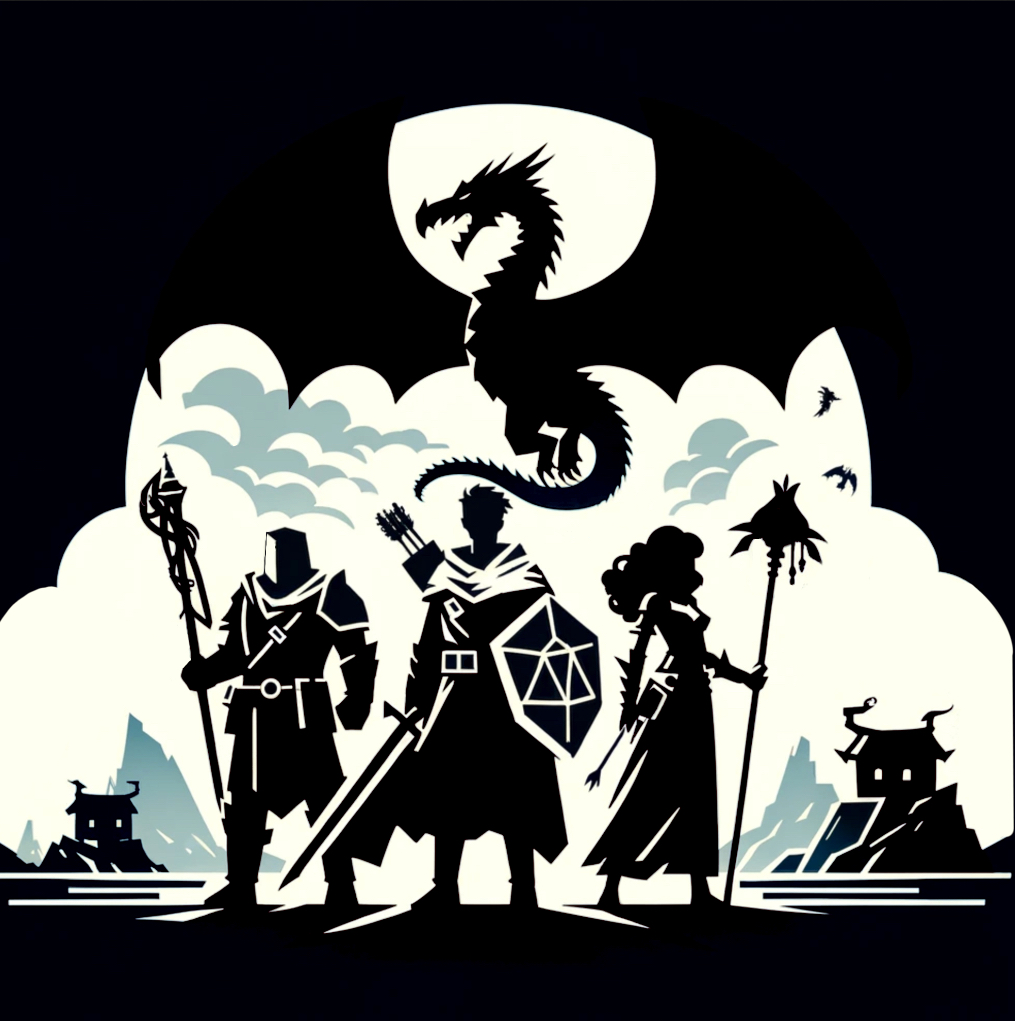Dungeons and Dragons—often shortened to DnD—is a hobby that many people have heard of, but if you have never tried it before, it sounds like something only the most reclusive of individuals play. Oftentimes, DnD is portrayed in the media as a group getting together in full wizarding robes, huddling around in a dark basement to “roll to seduce the dragon.” Others who may be slightly more familiar with the game but still not have played before may know of Critical Role or a Roll20 series and think of highly polished sets, with massive production value and monologues from famous voice actors that make them think, “I could never do this, so why even try.” Before I tried DnD, I thought of it as a nerdy board game that, when initially explained, sounded way too complicated for me to understand. However, after a second chance and the opportunity to play with friends, I came to deeply enjoy the time I spent with the game, and I now consider myself fully a DnD fanatic. I really think that with some time and some explanation of what DnD is, many more people on campus will be willing to give it a try and potentially find a lifelong hobby for themselves.
A place to start would be why the mechanics of DnD make it enjoyable for many different types of people. First, the game relies on improvisation for many of the decisions you are going to make. While this sounds intimidating for people who may not enjoy the spotlight as much, it allows for many memorable and funny moments with your friends. As the success of actions is reliant on the roll of a D20, or a twenty-sided die, any interaction has the potential to spiral quickly out of control on a high or low roll. There are many completely unplanned moments that my group and I still bring up to this day.
The customization available in DnD is another part that many people enjoy. Because every character you create can be completely original, people have the ability to tell their own stories. If you want to play a simple human knight on a quest for glory, you can do that. If you would like to play a dwarf left for dead who has sworn revenge against the general who abandoned him and stops at nothing to find him, you can do that too. Even concepts like a robotic bartender who is traveling the world to find the best ingredients for new drinks can be done. Additionally, the mechanics available in the game allow you to choose from many different types of fantasy roles, from a know-it-all Wizard to a stoic Monk to a promiscuous Bard. If none of the aforementioned ideas fit what you want, there are so, so many fan-created ideas for classes, spells and races that, with some work, you can use to surely create the character that you’ve always imagined in your head.
Even if you don’t think that you are a particularly creative person, the mechanics of the game can entice you as well. If you enjoy gameplay that requires tactical, in-the-moment thinking, tight resource management tied to risk/reward scenarios or mastering an in-depth set of rules and figuring out a combination to break the game right open, DnD has it all for you. DnD’s rules are simple to learn, but when studied in depth, allow for mastery on the battlefield. In the same vein, some classes are easy to pick up for first-time players, such as Fighters or Monks, but others such as Wizards and Druids can easily challenge the player with many different resources to use. Deciding when to cast a Fireball or save it for later can be an exercise in tactical knowledge, resource management and probability all at once.
Maybe none of what I’ve stated above interests you. You’re not a fan of acting, there’s no character in your brain you’ve wanted to create and the idea of managing spell slots, Wild Shapes and Ki points makes your head spin. However, the best part of DnD is the one I’ve saved for last: It’s a reason to get together with your friends. Asking a friend or a group of friends to hang out can be mentally draining, especially after COVID-19. Many times, I’ve wanted to socialize with others, but just sending the “hey, want to hang out” text can feel like more effort than it’s worth. However, an easy way to hang out with people is a reason to meet up. DnD is a perfect way for a group to get together and just have some fun. While technically DnD can be played alone, it is designed to be played with a group, and the best way I’ve found to play is with friends. With a good group that has a willingness to learn and respect the other people at the table, playing DnD is both fun and a great way to get to know people better. I’ve never gotten to know a friend better than when he was pretending to be a mindless barbarian, running around, smashing demons and screaming “Godart!” to a crowd of spectators.
So give it a try. There are so many people on this campus who I know would love to have more people interested in DnD. While I have not been to many of their events, I know that the Roleplaying Games Club is a great place to learn for those looking to start an adventure. Additionally, just try asking some friends if they would like to try DnD out. Decide a time and place, gather some people, take some time to learn the game and play a session through. DnD truly has given me some of my best friends and memories in college, and I don’t know where I would be without this fun, stupid, dice-rolling, dungeon-crawling, dragon-slaying game.




